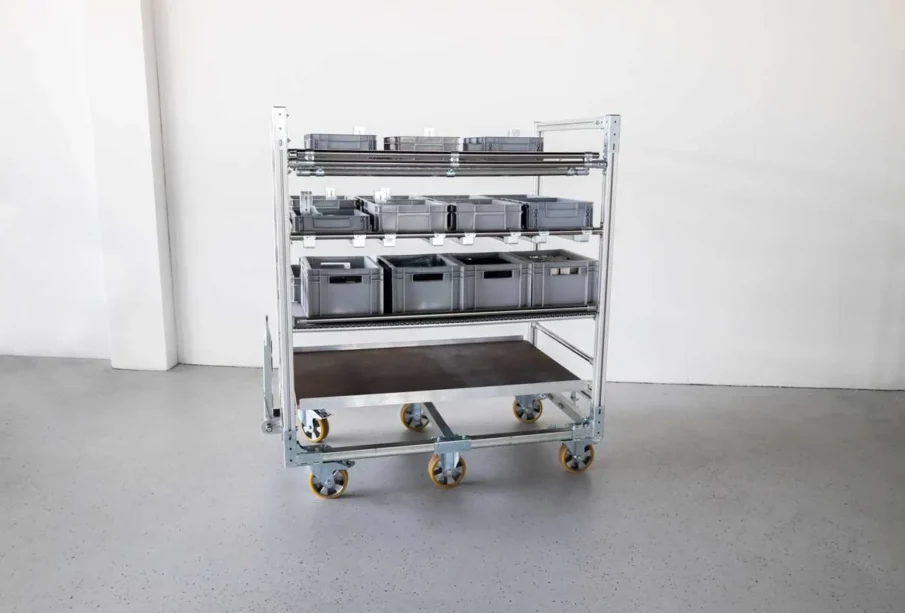Why Are More Businesses Turning to Lifting Trolleys for Material Handling?

In the modern business environment, efficient material handling is paramount for success. Businesses are constantly seeking innovative solutions to streamline their operations and enhance productivity. One such solution gaining traction is the utilization of lifting trolleys. These versatile tools offer a myriad of benefits, making them indispensable in various industries. Here we will explore reasons behind the growing preference for Lifting trolley in material handling operations.
Enhanced Efficiency and Productivity
Lifting trolleys are designed to optimize efficiency in material handling tasks. By mechanizing the lifting and transporting of heavy loads, these trolleys significantly reduce manual labor requirements. This allows employees to focus on more skilled tasks, leading to enhanced productivity levels within the organization. With lifting trolleys, businesses can accomplish more in less time, meeting deadlines and increasing overall output.
Improved Safety Standards
Safety concerns are a top priority in any workplace. Manual lifting of heavy objects poses a significant risk of injury to workers, leading to potential liabilities for businesses. Lifting trolleys mitigate this risk by providing a safer alternative for material handling. By utilizing mechanized lifting mechanisms and ergonomic designs, these trolleys minimize the likelihood of accidents and injuries, promoting a safer work environment for employees.
Versatility Across Industries
One of the key advantages of lifting trolleys is their versatility in various industries. Whether it’s manufacturing, logistics, retail, or healthcare, lifting trolleys find applications across diverse sectors. From moving inventory in warehouses to transporting equipment in hospitals, these trolleys adapt to different environments and tasks with ease. This versatility makes them a valuable investment for businesses seeking flexible material handling solutions.
Cost-Effectiveness
While initial investments in lifting trolleys may seem significant, the long-term cost savings they offer justify the expense. By reducing the need for manual labor and minimizing the risk of workplace injuries, lifting trolleys contribute to cost savings in multiple ways. Additionally, their durability and longevity ensure a high return on investment over time. Businesses can allocate resources more efficiently by incorporating lifting trolleys into their material handling processes.
Space Optimization
In today’s crowded workspaces, optimizing available space is essential for operational efficiency. Drum lifter trolleys are designed with compact footprints, allowing them to maneuver through tight spaces and narrow aisles with ease. This enables businesses to maximize storage capacity and workflow efficiency, particularly in environments where space is limited. By utilizing lifting trolleys, businesses can make the most of their available infrastructure without compromising on functionality.
Customization and Adaptability
Lifting trolleys offer customization options to suit specific business requirements. From adjustable lifting capacities to specialized attachments, these trolleys can be tailored to accommodate diverse load types and handling needs. This adaptability ensures that businesses can address unique challenges and optimize their material handling processes according to evolving demands. Whether it’s a small-scale operation or a large industrial facility, lifting trolleys can be customized to fit seamlessly into existing workflows.
Environmental Sustainability
As sustainability becomes increasingly important in business practices, lifting trolleys offer environmental benefits as well. By reducing reliance on traditional material handling methods that consume energy and produce emissions, these trolleys contribute to lower carbon footprints. Furthermore, the durability and recyclability of lifting trolleys align with the principles of sustainable resource management, making them a preferred choice for environmentally conscious businesses.













